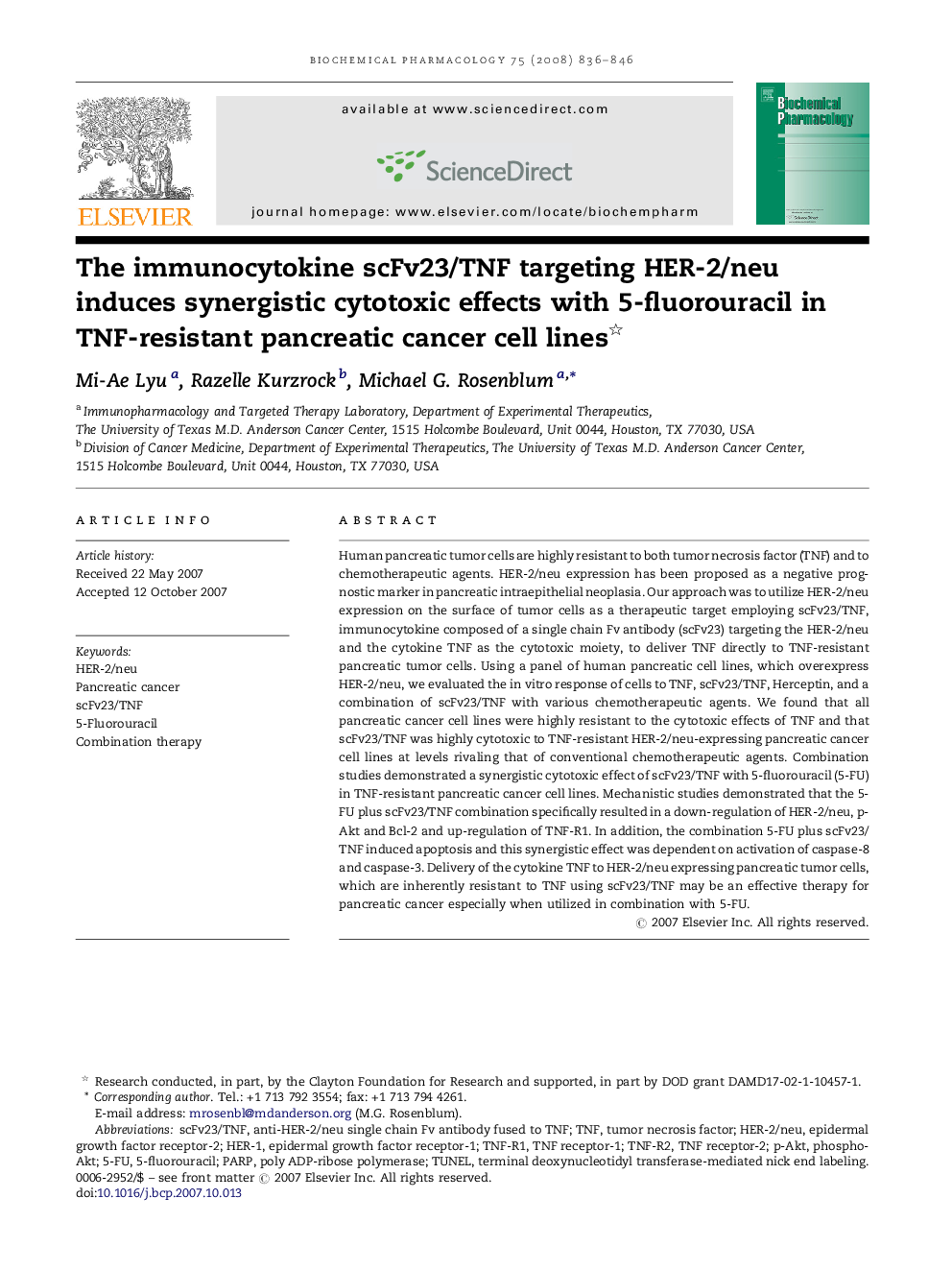| Article ID | Journal | Published Year | Pages | File Type |
|---|---|---|---|---|
| 5824244 | Biochemical Pharmacology | 2008 | 11 Pages |
Human pancreatic tumor cells are highly resistant to both tumor necrosis factor (TNF) and to chemotherapeutic agents. HER-2/neu expression has been proposed as a negative prognostic marker in pancreatic intraepithelial neoplasia. Our approach was to utilize HER-2/neu expression on the surface of tumor cells as a therapeutic target employing scFv23/TNF, immunocytokine composed of a single chain Fv antibody (scFv23) targeting the HER-2/neu and the cytokine TNF as the cytotoxic moiety, to deliver TNF directly to TNF-resistant pancreatic tumor cells. Using a panel of human pancreatic cell lines, which overexpress HER-2/neu, we evaluated the in vitro response of cells to TNF, scFv23/TNF, Herceptin, and a combination of scFv23/TNF with various chemotherapeutic agents. We found that all pancreatic cancer cell lines were highly resistant to the cytotoxic effects of TNF and that scFv23/TNF was highly cytotoxic to TNF-resistant HER-2/neu-expressing pancreatic cancer cell lines at levels rivaling that of conventional chemotherapeutic agents. Combination studies demonstrated a synergistic cytotoxic effect of scFv23/TNF with 5-fluorouracil (5-FU) in TNF-resistant pancreatic cancer cell lines. Mechanistic studies demonstrated that the 5-FU plus scFv23/TNF combination specifically resulted in a down-regulation of HER-2/neu, p-Akt and Bcl-2 and up-regulation of TNF-R1. In addition, the combination 5-FU plus scFv23/TNF induced apoptosis and this synergistic effect was dependent on activation of caspase-8 and caspase-3. Delivery of the cytokine TNF to HER-2/neu expressing pancreatic tumor cells, which are inherently resistant to TNF using scFv23/TNF may be an effective therapy for pancreatic cancer especially when utilized in combination with 5-FU.
